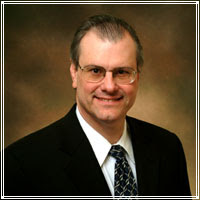Home Safety Council research shows that poisoning is the second leading cause of unintentional injury related death in the home. According to the American Association of Poison Control Centers (AAPCC) more than 92 percent of the 2.4 million poison exposures reported in the latest year studied occurred in the home. Yet, the Home Safety Council found that most families are not taking the appropriate precautions to reduce the risk of poison exposure.
Poison prevention is for everyone, not just children. The Home Safety Council's poisoning prevention advice can help individuals and families keep their homes safer from poisonous and toxic products, chemicals and gases, regardless of the ages of the occupants. Homes with young children need to take extra precautions. Follow these guidelines to keep your family safe from poison exposures at home:
Be Prepared
Know to call 800.222.1222 if someone takes poison. Call the Help number if you have a question about poisons.
Keep the number by every phone. Call 9-1-1 if someone won’t wake up, is having trouble breathing or is having seizures. If the person seems okay, but you think they may have taken poison call 1-800.222.1222.
Carbon Monoxide (CO) is a deadly gas that you cannot see or smell. The gas collects when fuels are burned.
* Have a service person check heaters, stoves and fireplaces every year to see that they work well.
Have a carbon monoxide (CO) detector near the bedrooms. This will tell you if the gas level is too high.
Push the “test” button on the detector so everyone will know the sound it makes.
Know the things in your home that are poisons.
Read the labels of the products you use in your home. If the label has the words “Caution”, “Warning”, “Poison” or “Danger”, keep out of reach of children and lock them away. Read the labels and follow directions when using these.
Protect Young Children
Take all medicines and medical supplies out of purses, pockets and drawers.
Put them in a cabinet with a child safety lock.
Have child safety caps on all chemicals, medications and cleaning products.
Lock all dangerous items and products in a cabinet. Cosmetics (make-up) can be poison too.
Keep medicines and cleaning products in their original containers with the original labels intact.
Store all dangerous products away from food and drinks. Be especially aware of products with fruit shown on the labels, which could be confused as being edible.
Keep each family member’s medicines in a separate place, so they don’t get mixed up. Carefully measure doses and track medicine given/received.
In the Bathroom
Keep all chemicals, cleaners, medicines, cosmetics and other toxic and/or caustic products in their original containers with the original labels intact.
Have a medicine cabinet you can lock.
Be safe. Throw away medicines if you don’t use them or they are old or the date has expired.
Do not put medicines in the sink or toilet. They can poison our water and make people and animals sick. Put the medicine in the garbage.
Take off the label before you throw the medicine container away if it has your name or any information about you.
Wrap the container in paper or plastic bag. Close the bag and put it in the garbage. Keep children and pets away from the garbage.
If you have pills, crush them before you throw them out. Mix the pieces into old coffee grounds, sand, or kitty litter.
Call your Health Department. Ask if there is a place to take old medicines.
In the Garage and Storage Areas
Chemicals, fuels (such as gasoline), car fluids (such as anti-freeze), pesticides (such as bug killers), and lawn and garden products (such as fertilizer) are poison.
Keep products in their original containers. Close the lid and put all dangerous products away after using them.
Store them where children cannot reach them; use locks on cabinets.
Close and put away dangerous products after using them.
Clean up spills as soon as they happen.
When Using Motors
Carbon Monoxide (CO) is a deadly gas that you cannot see or smell. The gas collects when fuels are burned.
Never run a motor or vehicle engine inside an attached garage, as deadly carbon monoxide can enter your home this way.
Use portable generators outside only. Do not use it inside your home or garage.
Use a barbeque grill outside only. Do not use it in your home or garage.
See http://www.homesafetycouncil.org/safety_guide/sg_poison_w001.aspx
____________________________________________
For additional information contact:
Alan L. Morton
MORTON LAW OFFICES, CHARTERED
1005 North Eighth Street
Post Office Box 420
Boise, ID 83701-0420
Telephone: 208.344.5555
Toll Free: 866.946.1669 (866.WIN.1.NOW)
Facsimile: 208.342.2509
Email: amorton@mortonlawyers.com
Website: www.mortonlawyers.com
Thursday, July 9, 2009
Subscribe to:
Post Comments (Atom)

No comments:
Post a Comment